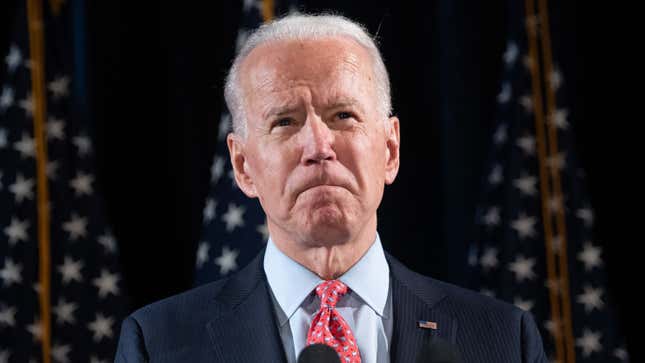We've Been Here Before
Politics

There are many things in the historical and contemporary record that we know about Joe Biden and his relationship to women and to feminist causes. There are the many women who have accused him of inappropriate and unwanted touching, a penchant of his that has been widely documented. There is his longstanding support for the anti-abortion Hyde Amendment, a position he only recently was forced to change after sustained pressure from feminist activists during the early months of his presidential campaign. There was his attempt, as the Affordable Care Act was being debated, to deny people contraception coverage. There was his disgraceful treatment of Anita Hill during Clarence Thomas’s Supreme Court confirmation hearings, for which to this day he has only offered a tepid apology, one that Hill herself is not satisfied with.
There is his role in championing tough-on-crime policies, not to mention his willingness to gut Social Security and Medicare. There is, as Biden himself and many of his supporters would counter, the Violence Against Women Act, which he championed, but which was itself inextricable from the push towards ever-increasing criminalization. As Diana Moskovitz wrote in Jezebel, “[T]here’s an alternative narrative of VAWA that is also part of Biden’s legacy: It bound vital supports for domestic violence victims to an endless expansion of the carceral state.”
In my mind, all of this should have been reason enough to cast Biden aside during the primary, as a retrograde relic who has consistently shown himself to be both unable and unwilling to meet the demands of the moment. But none of these factors seemed to matter to Democratic Party operatives and a wide swath of the party’s voters, who have despite all evidence of his unsuitability anointed Biden as the man to defeat Donald Trump in November. Which is partly why it’s so depressing now, as we inch inevitably closer to what will literally be a life-or-death election, that we find ourselves in a situation where we will be choosing between a man who has been credibly accused of sexual assault by a former staffer, and a man who has been credibly accused of rape, sexual assault, or extreme sexual harassment by more than a dozen women.
-

-

-

-

-

-

-

-

-

-

-

-

-

-

-

-

-

-

-

-

-

-

-

-

-

-

-

-

-

-

-

-

-

-

-

-

-

-

-

-








































